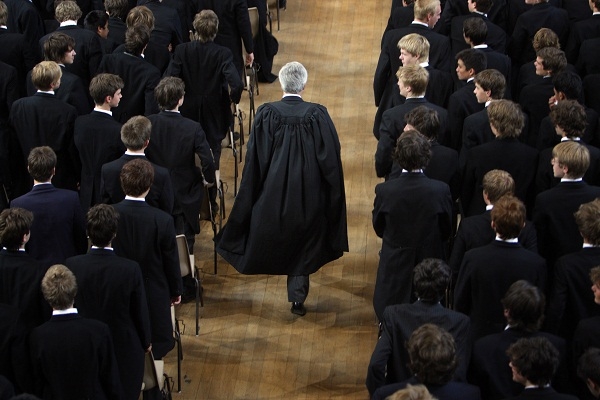Tony Little, the headmaster of Eton College, has given an interview (£) to the Times’ Alice Thompson and Rachel Sylvester. It’s a curiosity. On the one hand, Little is extraordinary: a local boy who won a bursary to Eton in the ‘60s. On the other hand, he is emblematic of how the headmasters of the ‘great public schools’ have become representatives of their schools rather than hands-on managers.
The interview reads like a sales prospectus for a philosophy of education. Little talks about the value of encouraging each boy’s talent to the full. Eton teaches 9 modern languages and coaches 30 sports. There is time in the school day for drama, music , art and debate. Teachers are involved in the pastoral care of pupils long after the classrooms are plunged into darkness; it’s part of their generous and comfortable deal.
Can the state sector learn from Eton’s example? Little gave a non-committal answer to that question, which suggests that any lesson is going to be limited by the prohibitive cost of an Eton education (£30,000 a year before any of the optional extras). But he did say that teachers in both the private and public sectors must be given more freedom to educate and nurture, rather than teach a centrally-ordained syllabus that is examined according to very narrow criteria.
Little went on to dismiss Michael Gove’s proposed baccalaureate, describing it as ‘neither fish nor foul’ which says ‘history is important but music isn’t.’ In this sense, Little voices a frequent criticism of Gove’s far-reaching education reforms: Gove has given institutions tremendous freedoms over the own affairs, but is strengthening central control over the classroom. The counter argument is that the education system is being carefully refashioned to serve the interests of children and parents before those of the teaching unions and other organisations, and Rome wasn’t built in a day.






Comments